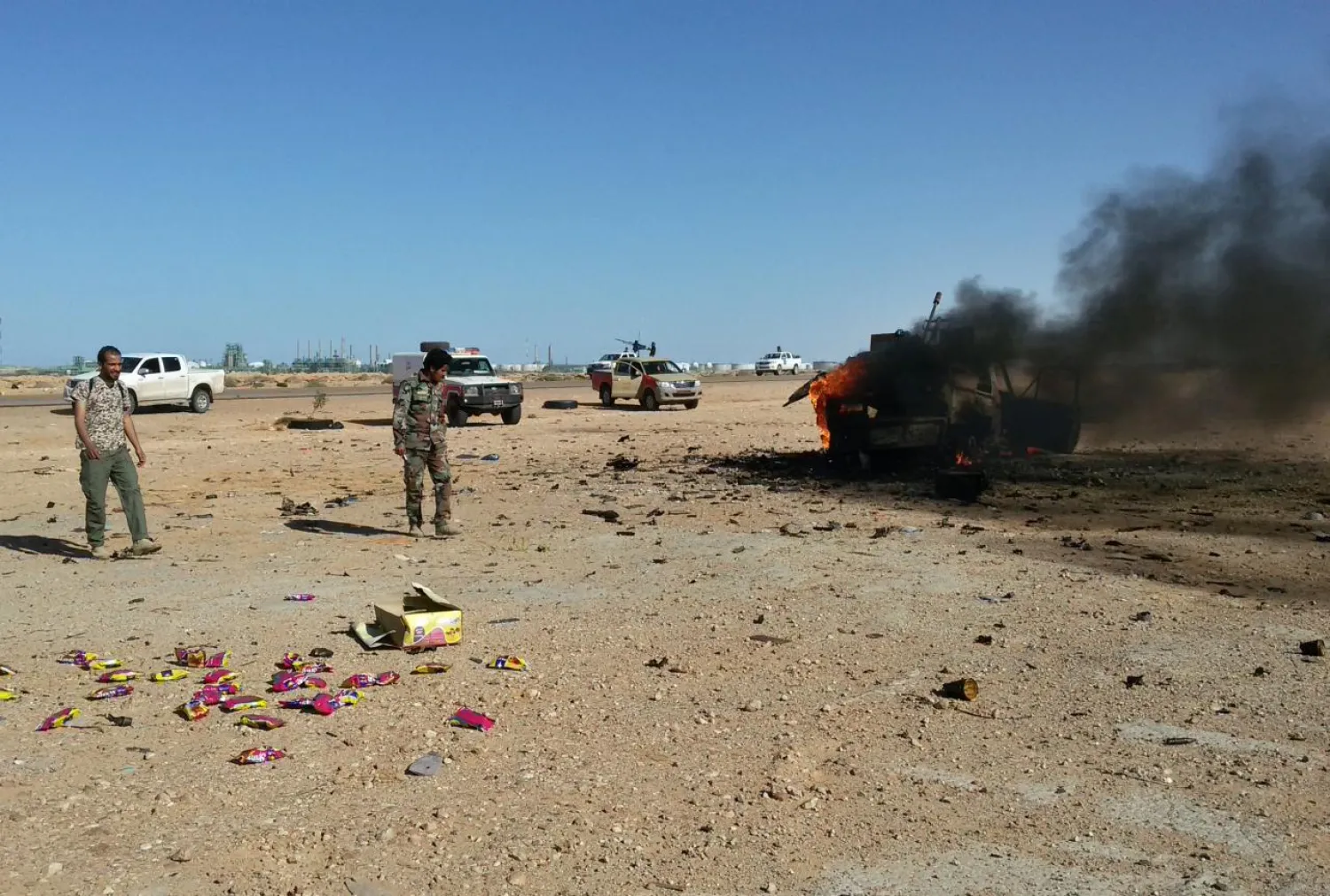Suspected ISIS militants have attacked the small central Libyan town of al-Fuqaha, killing at least four people, including the mayor's son, and torching the police station.
Fuqaha residents said on Monday that the attack took place overnight, and that a dozen residents are missing since the assault, their fate unknown.
The town lies south of the coastal city of Sirte, a former ISIS bastion.
The area is marked by poor security deep in the desert where ISIS had withdrawn to after losing Sirte in December 2016.
Ismail al-Sharif, a lawmaker in the eastern-based House of Representatives, said the attack had probably come as revenge because some town youths had helped catch a local ISIS leader this month.
The attack underlines the volatility of Libya's central region, where ISIS and other armed groups, including some from neighboring Chad, operate as highway robbers or attack patrols of the Libyan National Army led by Khalifa Haftar.
Forces allied to Haftar have moved into al-Fuqaha as part of efforts to push south.









